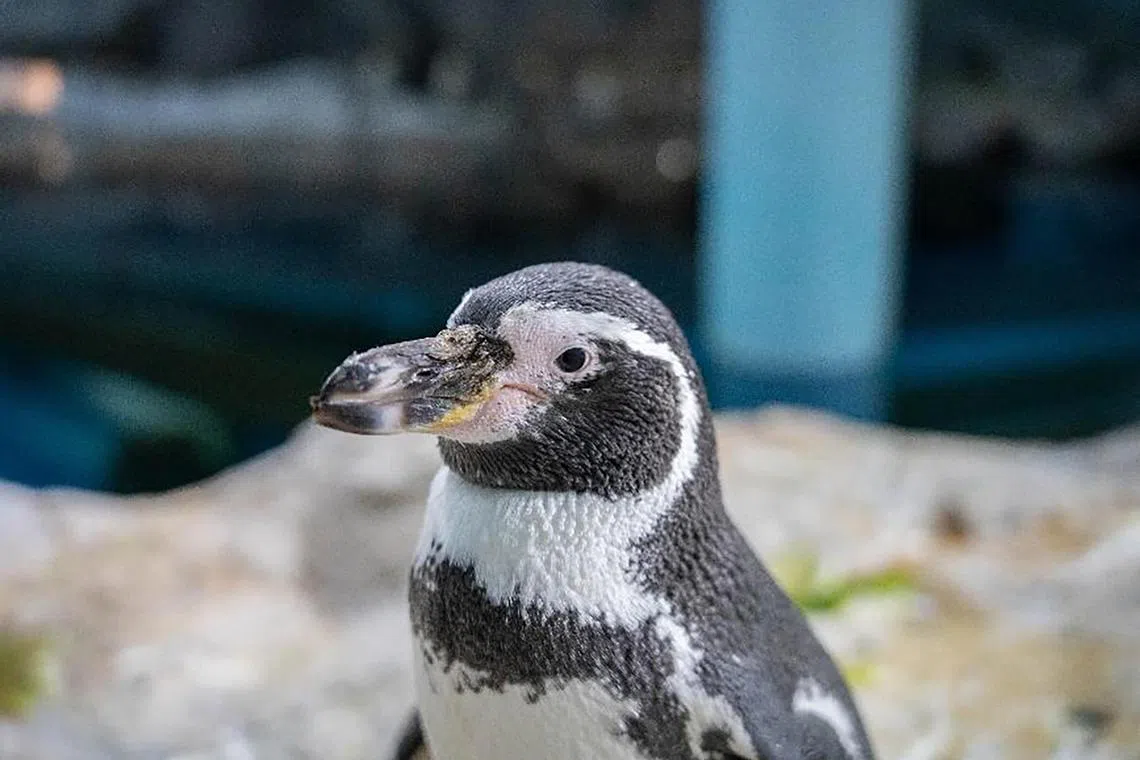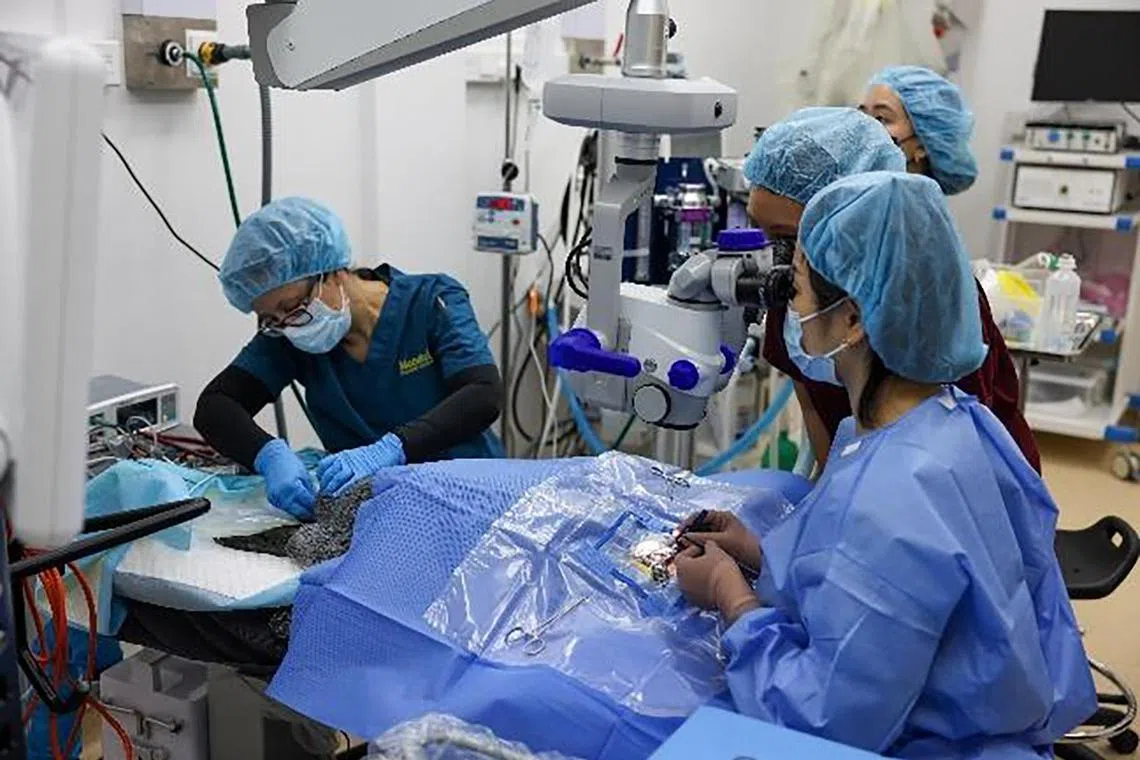6 geriatric penguins at Jurong Bird Park undergo successful cataract surgery
Sign up now: Get ST's newsletters delivered to your inbox
SINGAPORE – Six geriatric penguins at Jurong Bird Park have undergone cataract surgery and made a full recovery.
They comprise three king penguins that are 20 years old and above, and three Humboldt penguins between seven and 13 years old.
The king penguins received custom-made intraocular lens implants, which involved replacing their original lens with an artificial lens in the eye, said Mandai Wildlife Group in a statement on Tuesday.
It added that the procedure is believed to be a first in the world for penguins.
The eye operations have helped to enhance the penguins’ sight and improve their quality of life, said the group.
King penguins are the world’s second-largest penguin, after emperor penguins. They can weigh up to 15kg and grow up to almost 1m tall. They can live up to 30 years under human care.
Humboldt penguins can grow to be about 66cm to 71cm and weigh about 4.7kg, and have a reported lifespan of about 20 years under human care.
The penguins are now back with the rest of the colony at Jurong Bird Park, and are set to move to the new Bird Paradise in Mandai Wildlife Reserve.
Following the closure of Jurong Bird Park on Jan 3, Bird Paradise is slated to open in the second quarter of 2023.
Animals that reach 70 per cent of their lifespan are placed on the Mandai Wildlife Group’s Senior Animal Care Plan.
Under the plan, these animals have more frequent health checks by the veterinary team and specialised diets to ensure that they continue to live quality lives even in old age.
Last August, Mandai Wildlife Group engaged veterinary ophthalmologist Gladys Boo from The Eye Specialist for Animals as part of the penguins’ care regimen.
The senior penguins were then diagnosed with cataracts.

Holly, a Humboldt Penguin, post-surgery. A marked improvement can be seen on her left eye which is now cleared up.
PHOTO: COURTESY OF MANDAI WILDLIFE GROUP
Surgery for the penguins involved the removal of the cloudy lenses caused by cataracts, a common age-related condition that develops in geriatric animals and hinders their vision.
Mandai Wildlife Group veterinarian Ellen Rasidi said the group noticed cloudiness in the penguins’ lenses.
The penguins also looked like they were having difficulty seeing things in front of them when they moved, she added.
Noting that cataract surgery for animals is increasingly common and effective for restoring vision, Dr Rasidi said: “Together with the animal care team, we opted for this procedure to enhance their overall well-being and welfare, as well as aid in their transition to their new home in Bird Paradise when they move.”
In December 2022, The Eye Specialist for Animals team led by Dr Boo successfully performed cataract surgery on the penguins. The team also had the assistance of the veterinary team from Mandai Wildlife Group.
After surgery, the penguins had to remain out of the water and stay in a separate den from the rest of the colony to recover, with keepers administering eye drops twice daily.
“Since the recovery period, we have observed an increase in responsiveness and activity levels in the penguins,” said Dr Rasidi.
“It is nice to see them more active, indicating their improved vision, and for the king penguins... adapting well to the new lenses as well.”

A King Penguin undergoing cataract surgery at The Eye Specialist for Animals clinic.
PHOTO: COURTESY OF MANDAI WILDLIFE GROUP
Calling the king penguins’ surgery a milestone in veterinary medicine, Dr Boo said: “While intraocular lens implants are common for humans and some domestic mammals, it is likely the first time they have been successfully used on penguins.”
As king penguins are a larger species, their eyes are large and stable enough to hold the custom lenses in place, said Dr Boo.
The team then decided to employ the procedure to further improve the animals’ vision, in addition to removing the cataracts, she added.
The lenses were custom-made in Germany to fit each penguin’s eye based on precise measurements taken in advance, and took about two months to make.
“Cataract operations on their own are already delicate procedures, but for penguins, it was made trickier by unique characteristics such as a third eyelid which protects their eyes underwater,” said Dr Boo.
“The third eyelid tends to close during surgery, which can make it difficult for us to access the eye. I’m glad we were able to work through these challenges to improve the lives of these animals.”



